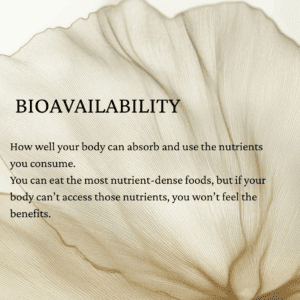
How Does He Shou Wu benefits Hair Health?
Few herbs are as revered in Traditional Chinese Medicine (TCM)

Kick-start, energise, rejuvenate
All carefully planned and prepared to help nourish, reset and rejuvenate the body and mind.


Carbohydrate seems to be getting a lot of attention in a nutritional debate lately. Some say it is not essential and should be as low as you can handle (ketogenic diet and low carbohydrate paleo community for instance). If you are or considering to try low carbohydrate diet there are many things to consider. One of the very important issues is how it can affect your gut health.
We are more aware about the fact that our microbiome affect our over all health including the immune system, brain function, our mood and metabolism. It has a huge impact on how our body operates.
Even though a new study shows that bacteria cells don’t outnumber our human cells by 10 times as previously thought *1, we are more like human cells housing this amazing number of bacterial cells. They do play a big role.
Our diet directly impact this community. There are many interesting facts and how we can do that but instead of going there I would like to stick to the topic today, carbohydrate intake.
More specifically…. dietary fibre. When these bacteria digest their foods/ fibre they produce gut healing substances like short-chain fatty acids and butyrate. This short chain fatty acids produce a signal that affect our immune system in a positive way. They increase a number of T regulatory cells (preventing excessive reactions, calm hyper immune system, excessive inflammation)
The microbes in our digestive system primarily live at the end of the digestive tract. when we consume diet that consists of meals with no fibre (e.g. simple carbohydrate and fat) they are absorbed in the upper GI tract and leave these microbes with no food to eat.
Knowing those facts make me wonder about the trend towards low carbohydrate diet. Highly refined processed carbohydrate (aka simple carbohydrate) is not great in anyone’s book. This includes processed sugars, refined grains etc. However complex carbohydrate such as whole grains, fruits and vegetables which have fibre can make it down to the end of GI to feed our microbes in the colon. So if we don’t feed these microbes where they usually live they are forced to rely on feeding carbohydrate that is stored in our mucus lining that are in our digestive system. They are then becoming so close to our epithelial cells that or immune system see these bacterials as an invasion and start over reacting.
Other varieties or chemical compounds are produced by these microbes all the time. At the time we dont know all of them and what the do but it is very likely that they play a big role in many body functions and cannot be overlooked.
So we established how fibre is essential for our healthy micobiome. At this moment average australians consume 20-25g fibre a day *2 (americans 10-15g). Tanzanian hunter gatherers and probably our ancestors have consumed 100 to 150 grams a day. it is clear that we do need to increase the number but also need to be aware that we require varieties of fibres.
Not all bacteria like to eat the same thing (just like us humans!) One kind may be really good at metabolising a certain kind of fibre over the others. If you are eating many different kind of complex carbohydrates you can foster a more diverse eco system that are more rich and robust.
Cellulose – cereals, fruits, vegetables
Lignin – flax, stone fruits, vegetables, cereal
Inulin – artichokes, banana, leeks, onion
Pectin – fruit skin, vegetables
Hexosan – wheat, barley
pentosan – rye, oats
etc…
That is a great point because that says a lot about added fibre to packaged products. When food manufacturers add fibre it is usually one type of fibre (usually in the form of psyllium husks or chicory) which would feed only certain kinds of bacteria and this can disrupt balance.
On top of that you will find many additives, preservatives in these packaged products. These are likely to cause negative effects on our microbiome.
So getting back to our carbohydrate intake. I am 100 percent for removing simple highly processed carbohydrate. But I do worry to see people taking out all the carbohydrates from their diet for whatever their reasons are for a long term. We talked about this from gut health point of view but there are many other aspects to consider such as brain and mental function, liver and kidney overload (from relying on fats and protein for calorie), quality sleep etc.
Grain free, gluten free, Atkins diet, paleo diet, ketogenic diet have been getting some attentions lately. It may work for some people (though there are many things to consider why it worked and how long for) but that does not mean that it is good for everyone.
I am off eating some vegetables now 😉
*1 https://biorxiv.org/content/early/2016/01/06/036103
*2 https://www.betterhealth.vic.gov.au/health/healthyliving/fibre-in-food
read more on the studies here
https://www.ncbi.nlm.nih.gov/pmc/articles/PMC3735932/
I have another article on low carbohydrate diet and you can read it here
“What you need to know before going on low carbohydrate diet“

Few herbs are as revered in Traditional Chinese Medicine (TCM)

For centuries, He Shou Wu (何首乌), also known as Fo-Ti

When it comes to nutrition, there’s one concept that’s often
Copyright Shoku Iku © 2024 | All Rights Reserved.
The statements on this website have not been evaluated by the TGA or FDA. These products are not intended to diagnose, treat, cure or prevent any disease.
Sign up to receive your discount.